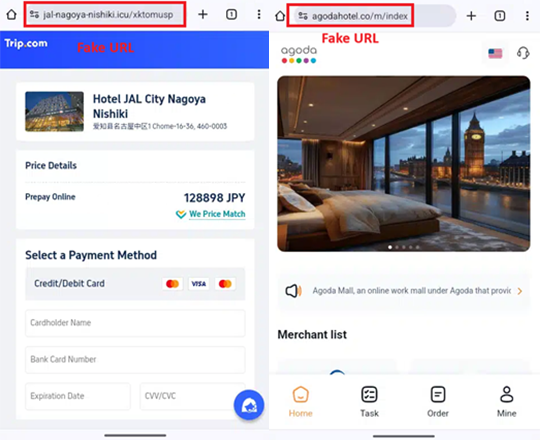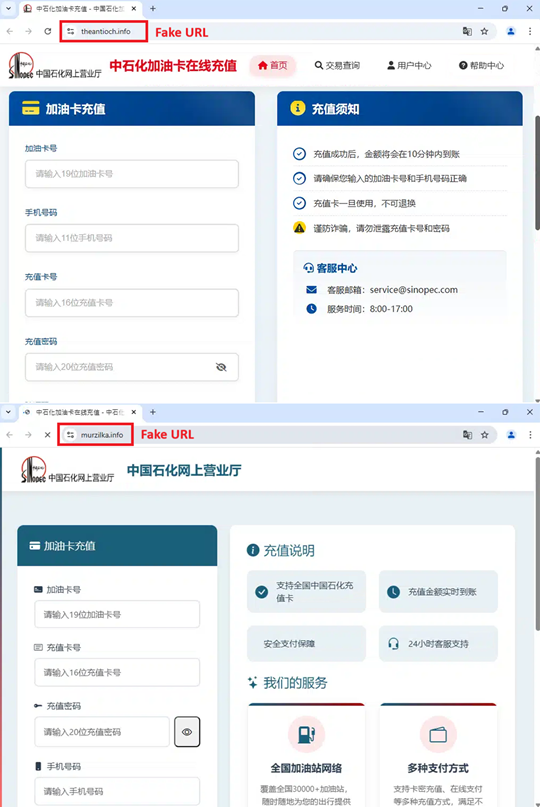-
Our Services
- AI with HKPC PICASSO
- The Cradle – Go Global Service Centre
-
New Industrialisation
- New Industrialisation
- New Productive Forces Service Platform
- Smart Production Line
- Innovation Technology and R&D
- Transformation and Upgrading
- Nurture New Industrialisation Talent
- Rules and Regulations
-
HealthTech and Traditional Chinese Medicine
- HealthTech and Traditional Chinese Medicine
- R&D service and Functional Investigation on Chinese Medicine, Health Food & Wellness product
- Compliance Consultation Service for Chinese Medicine, Pharmaceutical, Health Food and Medical Device Industries
- Manufacturing Enhancement - Automatic Intelligent System for Production and Packaging in Chinese Medicine, Pharmaceutical and Health Food Industries
- Assisting funding application for local medicine and health industrial associations
- “The Cradle” Services for Health Tech and TCM Industry
-
Smart Manufacturing
- Smart Manufacturing
-
IIOT
- IIOT
- Industrie 4.0 - Smart Enterprise
- Product Lifecycle Management Consultancy
- Intelligent Automatic Warehousing and Logistics
- Real-Time Manufacturing Tracking System
- Knowledge Based Engineering & CAD Solution
- Location Based Services and Location Analytics
- The HATCH
- Hong Kong Industrial Drone Technology Centre
- Novel Materials
-
Advanced Manufacturing Technology
- Advanced Manufacturing Technology
- 3D Scanning and Reverse Engineering Service
- Flexible Metallic Fiber Physical Porous Part Fabrication Technology
- Advanced Mould Cooling Technology and CAE Conformal Cooling Analysis
- Gas Atomisation Technology
- Dual Laser Metal Polishing Technology
- Advanced Additive Manufacturing, 3D Printing Technology, and Direct Manufacturing
- Diffusion Bonding Technology
- Electrically-Assisted Free Forming (EAFF) Technology for Customisation of Sheet Metal Parts
- Plastic Process and Machinery Technology
- Fashion and Garment Technology
- Computer Aided Technology (CAx)
- Watch Assembly Automation Technology
-
Digital Transformation
- Digital Transformation
- HKPC Digital DIY Portal
- Digital Transformation Support
- Intelligent Integrated Non-wearable and Wearable Health Monitoring System and App for Elderly Homes
- 「FitEasy」Virtual Fitting Technology - For People with Disability
- Smart Solution
- Research and Analytics
- Strategic IT Management
- Embedded Software System
- New Media and Learning Technology Development
- IT Industry Support
- DevOps Maturity Assessment and Consultancy Service
- Software Testing Automation Consultancy Service
- Blockchain Consulting Service
- Extended Reality (XR) technology and consultancy service
-
Cyber Security
- Cyber Security
- Cyber Security
- Cybers Security-by-design, Privacy and Compliance-by-default
- Design & Architecture
- Train & Develop
- Offensive Security
- Intelligent Security
- Defensive Security
- Intelligent Hardening
- Internet of Things (IoT) & Operational Technology (OT) Cyber Security Testing
- Phishing Defence Services
- Cyber Security Assessment & Audit
- Cyber Security Consultancy for i4.0 & e4.0
-
Green & Smart Living
- Green & Smart Living
- Green Technology
- Food Technology
- Smart Living
-
Corporate Sustainability
- Corporate Sustainability
- ESG and Sustainability Services
- Manufacturing Technology (Tooling, Metals & Plastics) Recognition of Prior Learning (RPL) Mechanism
- Market Research and Analytics
- Business Innovation
- Sustainability-related standards and guidance
- Organisation Innovation Capability Development
- District Innovation
- Customer Service Assessment
- Intellectual Property (IP) Protection and Management
- Support to Creative Industries
- Manufacturing Standards Consultancy Service
- Production Capacity Optimisation
- Cost of Quality
- HKPC Academy
- SME Support
- Funding
- Testing & Standards
- Venues & Facilities
-
Support & Resource
- Technology Transfer
-
Support Centres
- Support Centres
- Low-altitude Economy Tech Hall
- The Cradle – Go Global Service Centre
- Agentic AI and Industrial Metaverse Hall
- HKPC-HP 3D Printing Technology Centre
- Future Manufacturing Hall
- Hong Kong Technology and Innovation Support Centre
- Inno Space
- The HATCH
- Advanced Electronics Processing Technology Centre
- Green Living Laboratory
- Reliability Testing Centre
- Electromagnetic Compatibility Centre
- Plastics Technology Centre
- Smart Wearables, Watch & Clock Technology Centre
- Conformal Cooling Technology Centre
- Hong Kong Digital Testing Hub
- Hong Kong Industrial Drone Technology Centre
- Aqua Research Laboratory
- Advanced Materials and Intelligent Manufacturing Centre
- Hong Kong Joint Research Lab for Applications of Intelligent Automation Technology
- Future FoodTech Lab
- HKUST-HKPC Joint Research Lab for Industrial AI and Robotics
- Hong Kong Industrial Artificial Intelligence & Robotics Centre (FLAIR)
- Testing & Standards
- HKPC Spotlights
- About US
-
 LANGUAGE
LANGUAGE
HealthTech and Traditional Chinese Medicine
- R&D service and Functional Investigation on Chinese Medicine, Health Food & Wellness product
- Compliance Consultation Service for Chinese Medicine, Pharmaceutical, Health Food and Medical Device Industries
- Manufacturing Enhancement - Automatic Intelligent System for Production and Packaging in Chinese Medicine, Pharmaceutical and Health Food Industries
- Assisting funding application for local medicine and health industrial associations
- “The Cradle” Services for Health Tech and TCM Industry
IIOT
- Industrie 4.0 - Smart Enterprise
- Product Lifecycle Management Consultancy
- Intelligent Automatic Warehousing and Logistics
- Real-Time Manufacturing Tracking System
- Knowledge Based Engineering & CAD Solution
- Location Based Services and Location Analytics
- The HATCH
- Hong Kong Industrial Drone Technology Centre
Advanced Manufacturing Technology
- 3D Scanning and Reverse Engineering Service
- Flexible Metallic Fiber Physical Porous Part Fabrication Technology
- Advanced Mould Cooling Technology and CAE Conformal Cooling Analysis
- Gas Atomisation Technology
- Dual Laser Metal Polishing Technology
- Advanced Additive Manufacturing, 3D Printing Technology, and Direct Manufacturing
- Diffusion Bonding Technology
- Electrically-Assisted Free Forming (EAFF) Technology for Customisation of Sheet Metal Parts
- Plastic Process and Machinery Technology
- Fashion and Garment Technology
- Computer Aided Technology (CAx)
- Watch Assembly Automation Technology
Digital Transformation
- HKPC Digital DIY Portal
- Digital Transformation Support
- Intelligent Integrated Non-wearable and Wearable Health Monitoring System and App for Elderly Homes
- 「FitEasy」Virtual Fitting Technology - For People with Disability
- Smart Solution
- Research and Analytics
- Strategic IT Management
- Embedded Software System
- New Media and Learning Technology Development
- IT Industry Support
- DevOps Maturity Assessment and Consultancy Service
- Software Testing Automation Consultancy Service
- Blockchain Consulting Service
- Extended Reality (XR) technology and consultancy service
Cyber Security
- Cyber Security
- Cybers Security-by-design, Privacy and Compliance-by-default
- Design & Architecture
- Train & Develop
- Offensive Security
- Intelligent Security
- Defensive Security
- Intelligent Hardening
- Internet of Things (IoT) & Operational Technology (OT) Cyber Security Testing
- Phishing Defence Services
- Cyber Security Assessment & Audit
- Cyber Security Consultancy for i4.0 & e4.0
Corporate Sustainability
- ESG and Sustainability Services
- Manufacturing Technology (Tooling, Metals & Plastics) Recognition of Prior Learning (RPL) Mechanism
- Market Research and Analytics
- Business Innovation
- Sustainability-related standards and guidance
- Organisation Innovation Capability Development
- District Innovation
- Customer Service Assessment
- Intellectual Property (IP) Protection and Management
- Support to Creative Industries
- Manufacturing Standards Consultancy Service
- Production Capacity Optimisation
- Cost of Quality
Support Centres
- Low-altitude Economy Tech Hall
- The Cradle – Go Global Service Centre
- Agentic AI and Industrial Metaverse Hall
- HKPC-HP 3D Printing Technology Centre
- Future Manufacturing Hall
- Hong Kong Technology and Innovation Support Centre
- Inno Space
- The HATCH
- Advanced Electronics Processing Technology Centre
- Green Living Laboratory
- Reliability Testing Centre
- Electromagnetic Compatibility Centre
- Plastics Technology Centre
- Smart Wearables, Watch & Clock Technology Centre
- Conformal Cooling Technology Centre
- Hong Kong Digital Testing Hub
- Hong Kong Industrial Drone Technology Centre
- Aqua Research Laboratory
- Advanced Materials and Intelligent Manufacturing Centre
- Hong Kong Joint Research Lab for Applications of Intelligent Automation Technology
- Future FoodTech Lab
- HKUST-HKPC Joint Research Lab for Industrial AI and Robotics
- Hong Kong Industrial Artificial Intelligence & Robotics Centre (FLAIR)
HKCERT Alerts Travelers to Guard Against Phishing Scams During Summer Holidays to Protect Personal Data

(Hong Kong, 3 July 2025) As the summer travel season peaks, the Hong Kong Computer Emergency Response Team Coordination Centre (HKCERT) urges the public to heighten vigilance against sophisticated phishing attacks targeting travelers. Cyber criminals are capitalising on increased travel demand with deceptive tactics including counterfeit booking platforms and mainland fuel card scams, potentially leading to financial losses and identity theft.
Surge in Fake Travel Platforms with Alarming Authenticity
Phishing remains one of Hong Kong's and the world's most prevalent cyber threats. During peak travel periods, hackers frequently create fake websites and emails impersonating major travel service providers. HKCERT has detected a rise in phishing sites mimicking platforms like Agoda and Trip.com - these near-perfect replicas trick users into surrendering login credentials, credit card numbers, and passport details. Victims often only discover they've been compromised after suffering financial damage.

Emerging Threat: Counterfeit Mainland Fuel Stations Target "Northbound Travel for Hong Kong Vehicles"
Beyond travel scams, HKCERT has received multiple reports of phishing sites impersonating major mainland fuel providers like Sinopec. These fraudulent platforms specifically steal prepaid card information, particularly endangering drivers in the "Northbound Travel for Hong Kong Vehicles" scheme. Affected individuals face not just monetary loss but potential travel disruptions due to inability to refuel.

Evolving Tactics: QR Codes and Urgency-Based Traps
Phishing attacks are not limited to websites alone. Cyber criminals may also use phishing emails, instant messages, and even QR codes to trick travellers into divulging personal or payment information. These attacks are becoming increasingly sophisticated, often using lookalike domain names, fake security certificates, and urgent messages to pressure victims into acting quickly without proper verification.
Security Best Practices
To help travellers safeguard their information and finances, HKCERT recommends the following security best practices:
- Always access travel agency or service provider websites by entering the official URL directly or using trusted bookmarks. Avoid clicking on links from unsolicited emails, messages, or social media posts, as these may lead to phishing sites.
- Carefully verify the legitimacy of websites before entering personal or payment information. Check for signs of phishing, such as unusual URLs, spelling errors, missing security certificates, or design inconsistencies.
- Use secure and trusted Wi-Fi connections, especially when making bookings or payments online. Avoid connecting to public Wi-Fi hotspots with low security settings, as these may be vulnerable to interception.
- Do not disclose sensitive information, such as recharge card numbers, credit card details, or passport information, to unverified websites or unknown parties.
- Enable anti-phishing features in web browsers to help block phishing attacks.
- Use “CyberDefender” to identify fraud and cyber traps by checking email addresses, URLs, and IP addresses, or call the Hong Kong Police Force Anti-Deception Coordination Centre “Anti-Scam Helpline 18222” for assistance.
- Regularly monitor online accounts and payment records for suspicious activities. Set up transaction alerts and review bank statements to detect unauthorised transactions promptly.
- When travelling in Chinese Mainland, only top up fuel cards through official channels and never via third-party links or unofficial websites. If in doubt, consult official service provider hotlines for assistance.
- In case suspected being fallen victim to a phishing scam, immediately change your passwords, notify your bank or service provider, and report the incident to HKCERT for further assistance.
- Ends -
Share the latest information of HKPC to your inbox
Our Services
Support & Resource
HKPC Spotlights
COPYRIGHT© Hong Kong Productivity Council
